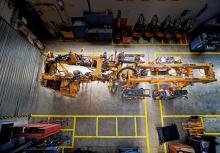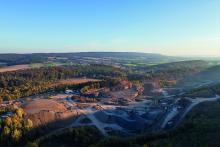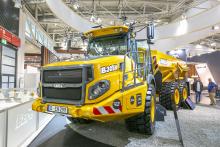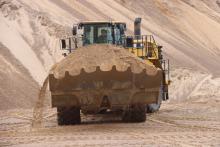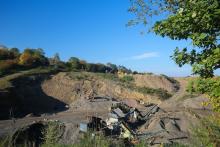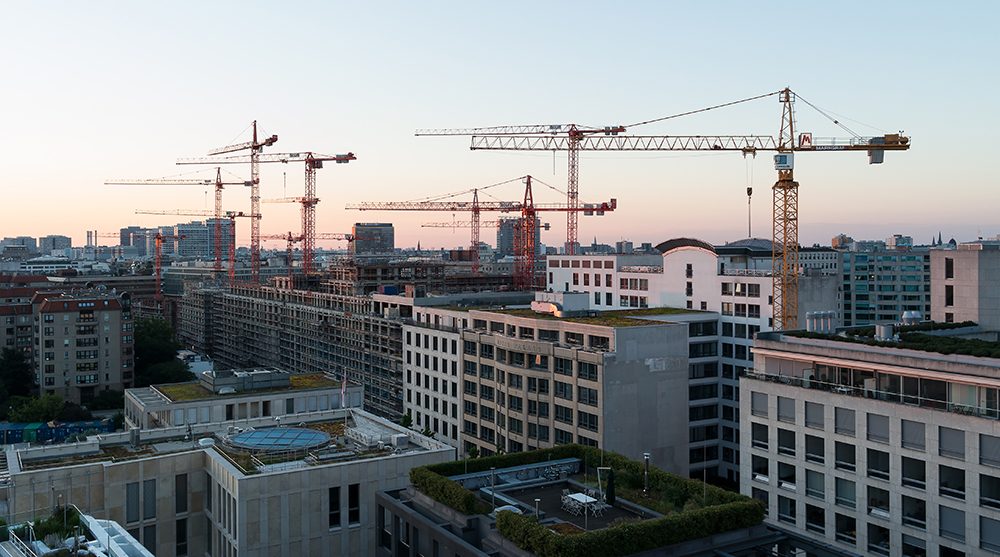
The German Aggregates Industry Association (MIRO) estimates that aggregates production has declined by -8-10% in 2022, with the price per tonne of aggregates increasing.
MIRO vice secretary general Walter Nelles commented: "Due to the sharp decline in production, sales of aggregates have declined slightly in 2022." He adds that factors contributing to the significant decline in aggregates production last year include the ongoing impact of the COVID-19 pandemic, the outbreak of war in Ukraine and the rising inflation rate in Germany, which reached 6.9% in 2022.
Nelles says the German coalition government - which came to power in 2021 and consists of an alliance of Social Democrats (SPD), Greens and Free Democrats (FDP) - is looking closely at the implementation of the EU's Green Deal, which includes a commitment to cut carbon emissions by 55% by 2030.
"They are looking at the use of sustainable aggregates and recycled material in construction," he adds. "Since this year, there has been a crisis in the construction industry with a massive decrease in investment in public projects for roads and new bridge construction and maintenance. This will lead to a further decline in aggregates production this year."
Nelles says the German government has fallen far short of its announcement to build 400,000 new homes each year. In 2022, only 250,000 were built, and this year the number will be even lower. He says that due to demographic changes, there is a shortage of skilled workers and labour. However, Germany must also provide housing for the roughly 400,000 workers needed, who must be acquired abroad. "Here, Germany is visibly heading for a bottleneck," says Nelles. "They need space to live, and it will be hard to find workers if they can't bring their families with them.
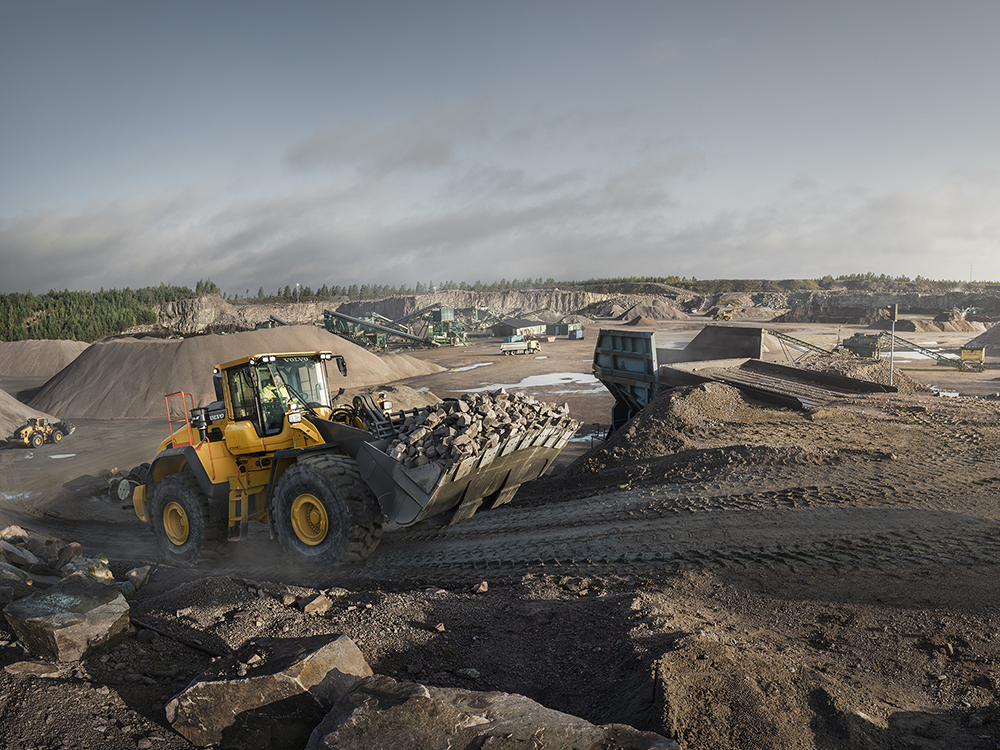
"One of the government's goals is to promote and further expand the use of renewable energies such as photovoltaics and wind power," he adds. "However, environmental and nature conservation authorities do not want wind windmills and photovoltaic plants in protected forest areas and nature reserves, for example. This is a real problem.
"We say in Germany that the construction sector was the biggest engine of the economy in the last 20 years. Now this engine is no longer working. For many construction companies, business is declining, there are too few orders and too few workers."
He adds that there are positives for the German aggregates and quarrying sector related to the use of renewable energy and achieving climate-change targets.
"To build windmills, you need a strong foundation," he says. "For example, a 3-megawatt wind turbine needs a foundation of around 1,000 m³ of concrete. That means 1,600 to 1,800 tonnes of aggregate just for one wind turbine, and it is not always possible to use recycled material for this, primary aggregate is almost always used. You also need concrete for the tower of the wind turbine."
He adds that aggregates are also needed for the construction of sustainable buildings: "Recycled aggregate is also used here. But if the construction sector comes to a standstill, then the construction and demolition waste that accumulates when old buildings are torn down will be missing. Because only when there is construction, is there also demolition.
"To achieve climate-change goals, you need sand, gravel and aggregates. Our industry provides the actual conversion material in the form of aggregates. We have them in our country. Most other things like iron ore and the so-called critical raw materials such as lithium, which are needed for electric-vehicle batteries, for example, have to come from other countries like China and Brazil, etc."
Commenting on the current market challenges for the German quarrying sector, Erich Kribs, product manager EU region at Volvo CE, highlights three main issues: obtaining permits for transport and exploration; the cost of energy for crusher, screening and belt systems; and availability of suitable operators and technicians.
Kribs says that Volvo CE’s services offerings are becoming more and more important as part of the industry’s digital transformation and this is mirrored in the German quarrying/aggregates sector.
“Our productivity services are the main opportunity for business right now as we see customers needing to take great steps forward in reaching their carbon-reduction goals while still increasing productivity, profitability and safety,” Kribs added. “Our CO2 Reduction Programme is a key focus for us in this area – and the advantage being that every save we make is also a save for the customer. Every save here is also a save for the customer. We feel that our range of mining and quarrying machines – wheeled loaders, haulers and excavators – are already very well represented in the sector.
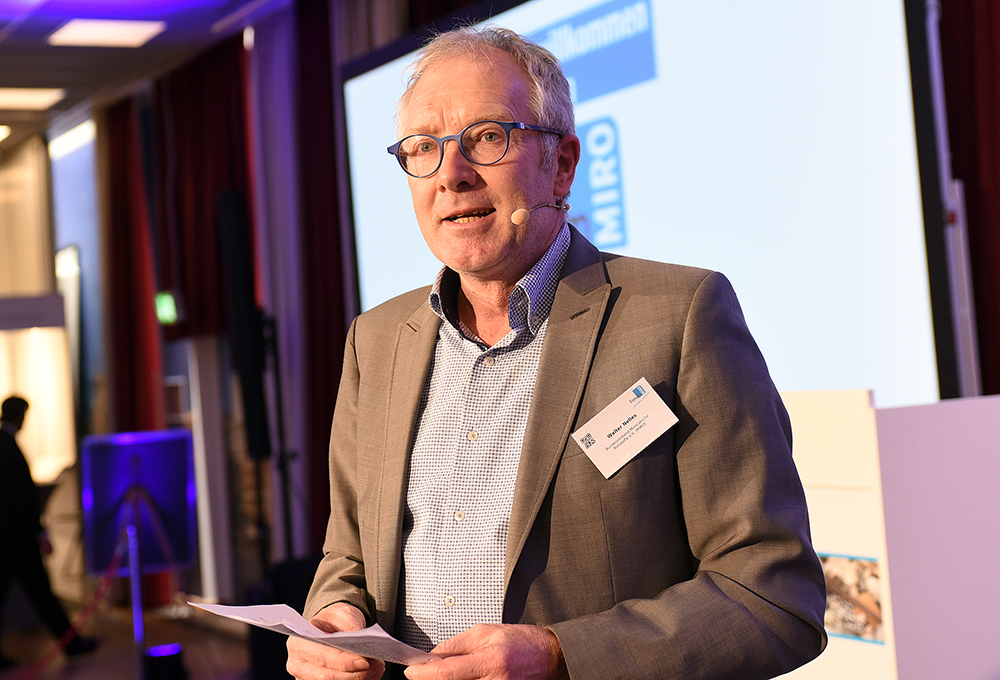
Kribs says that the machines currently most in demand from German quarry operators are wheeled loaders , from the Volvo L150 and larger. The company’s most in-demand excavators are the Volvo EC300 and larger. He adds that Volvo’s complete hauler range remains a popular choice for the quarrying and aggregates sector.
“All machines come with Volvo Co-Pilot with the On-Board Weighing (OBW) and TPMS (Tyre Pressure Monitoring System) functions to increase uptime, prevent wear and tear and reduce repair and associated costs. The main requirement for customers here is the importance of efficiency,” says Kribs.
He adds that the main trends in the German construction sector currently influencing demand for aggregates include ongoing infrastructure projects for building and maintaining highways and bridges, in addition to the electrification of railway networks.
Looking ahead over the next 12 months to the likely major developments in the German quarrying and aggregates sector, Kribs comments: “The most important factors to look out for will be to take care of cost increases which are happening in all areas, as well as the challenge in finding operators for our equipment.”
Construction industry output in Germany will grow by 2.7% to reach €250,640m in 2023, according to industry analyst ResearchandMarkets.
“Despite near-term challenges in certain construction sectors, the medium- to long-term growth story in Germany remains intact,” the analyst states.
“The growth momentum is expected to continue over the forecast period, recording a CAGR of 2.4% during 2023-2027. The construction output in the country is expected to reach €275,382.3m by 2027.”
ResearchandMarkets says that higher borrowing costs, surging raw material prices, and fears that recession could accelerate a further decline in property prices are all weighing on the growth of the construction industry in Germany. Home-building activities declined in Germany at a significant rate in 2022. In addition, new orders for all construction projects have also reported a decline in the country.
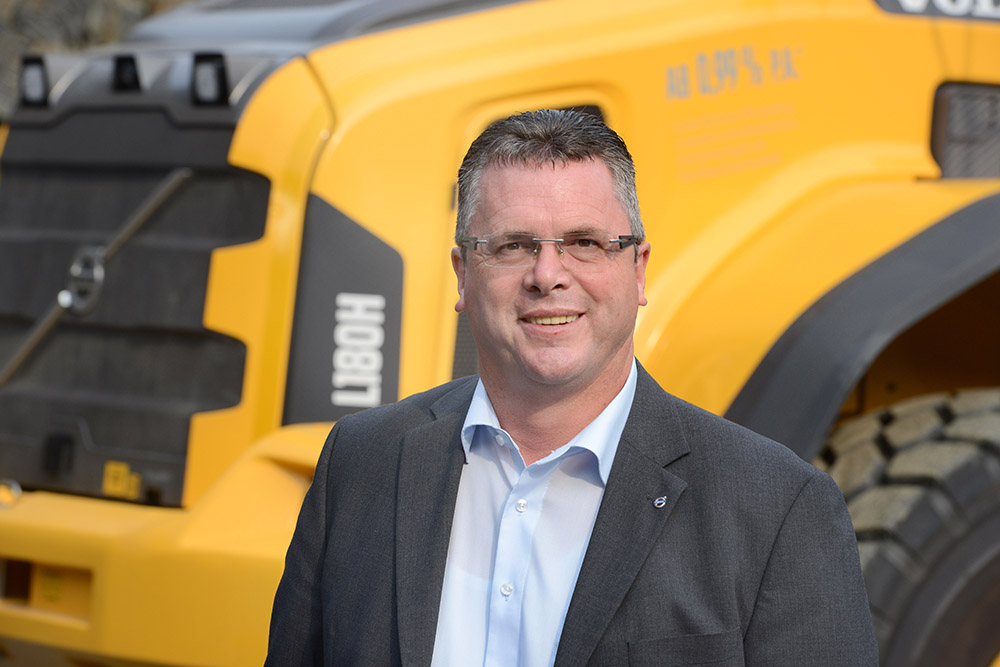
A number of construction firms suffered cancellations of building projects in Q4 2022. On the other hand, new home-building orders recorded a decline, compared to the same period in 2021. The cost-savings efforts of leading tech firms are also projected to have an impact on the construction of new manufacturing and industrial facilities in Germany over the next 12 months .
In its 2022 budget, the German government earmarked billions of euros for the development of rail infrastructure and the construction of roadways. The Federal Budget earmarked €3.86bn for the construction and expansion of roadways.
However, due to the increase in inflation and subsequent rise in construction-material prices, the analyst expects even higher spending on the development of railways and roadways infrastructure in 2023. This is projected to keep supporting the growth recovery of the construction market in Germany from the short- to medium-term perspective.
ResearchandMarkets says that, along with government spending, aid from the European Commission will also support infrastructure development in Germany. In December 2022, the EC approved €1.8bn to roll out power charging infrastructure for EVs.
The investment will be utilised to develop infrastructure for electric-vehicle charging in urban, suburban, and rural areas in Germany. At approximately 900 locations, a total of 8,500 high-power charging units will be deployed. This project is also expected to support the construction-industry recovery in Germany from the short- to medium-term perspective.
The construction of data centres has also been boosting the construction industry in Germany. In addition to German companies, global players such as NTT have launched new data-centre facilities in the country in 2022. Along with data-centre facilities, the pent-up travel demand has also resulted in the undertaking of many new hotel construction projects in 2022, and the trend is projected to further continue over the next 12 months.
ResearchandMarkets says this will keep supporting the growth of the commercial construction market in Germany over the next three to four years. The analyst adds: “The global pandemic outbreak accelerated the growth of the housing market, as more and more Germans were purchasing homes in rural areas, due to work-from-home measures and social-distancing norms implemented during the period. However, the sales have now declined significantly, owing to rising interest rates and subsequent increases in mortgage rates.
“With residential buyers holding back their purchases because of higher mortgage rates, a further decline in the housing market is projected. This will result in lesser housing projects compared to 2021, thereby affecting the growth of the residential construction market in Germany.”
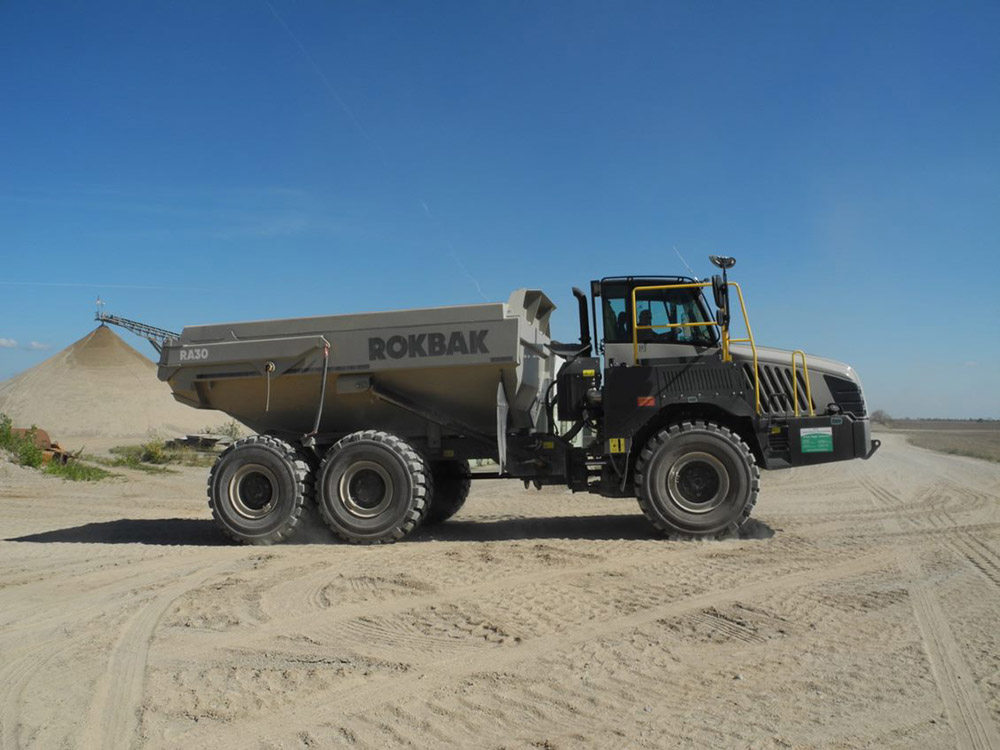
German and European members of industry organisation VDMA expect a new sales record for the coming year with a forecast real growth of up to ten percent.
The VDMA represents over 3,600 German and European companies in the mechanical and plant engineering industry, including construction equipment.
The association says the ability to deliver has improved due to the fact that more components are available to manufacturers. This was the general conclusion at the board meeting of the trade association VDMA Construction – Equipment and Plant Engineering on 14 July 2023.
It adds that orders from the past thus ensure the necessary capacity utilisation. However, the order backlog is now gradually decreasing because far fewer new orders are coming in. In the period from January to May 2023, construction machinery had already recorded a total decline of 19% in new orders and building-materials plants a fall of 23%.
Paul Culliford, regional sales manager EMEA at rigid hauler manufacturer Rokbak, says the company is continuing to build its brand across Germany. He adds: “Germany has always been a historically strong market for Rokbak and we’re now seeing an increase in demand. As a result, we’re always looking to expand our dealer network in the country to support customers and strengthen our presence in this important hauler market.”
Rokbak currently works the country with construction-machine rental service Klarmann-Lembach, which is based in Eltmann, central Germany, and operates across North Bavaria and Thuringia.
“Our partnership with Klarmann-Lembach has led to a good relationship with Saxony-Anhalt quarrying company Erdbau Schrader, which has been extremely happy with its Rokbak trucks,” Culliford says.
He states that 2022 was a very good year for the articulated hauler market. There were around 190 units, across all brands, sold in Germany and Culliford says there is a similar projection for 2023. The numbers are quite consistent, with approximately 85 units already sold by the end of May.
“We’re getting the Rokbak name out there and we have more and more companies requesting demo trucks,” he adds. “We had an RA30 in the middle of the Klarmann-Lembach open day in June which enabled customers to see the product up close and really let the machine speak for itself, as well as meet the team supporting the haulers.”
Culliford says that Rokbak’s focus for 2023 is to continue to increase its dealer footprint in Germany. “We’re looking for established dealers, with a good reputation, that have a range of products and want to add an articulated hauler to complement their equipment portfolio,” he adds. “Our main target markets are quarrying, construction, infrastructure development and mining.”
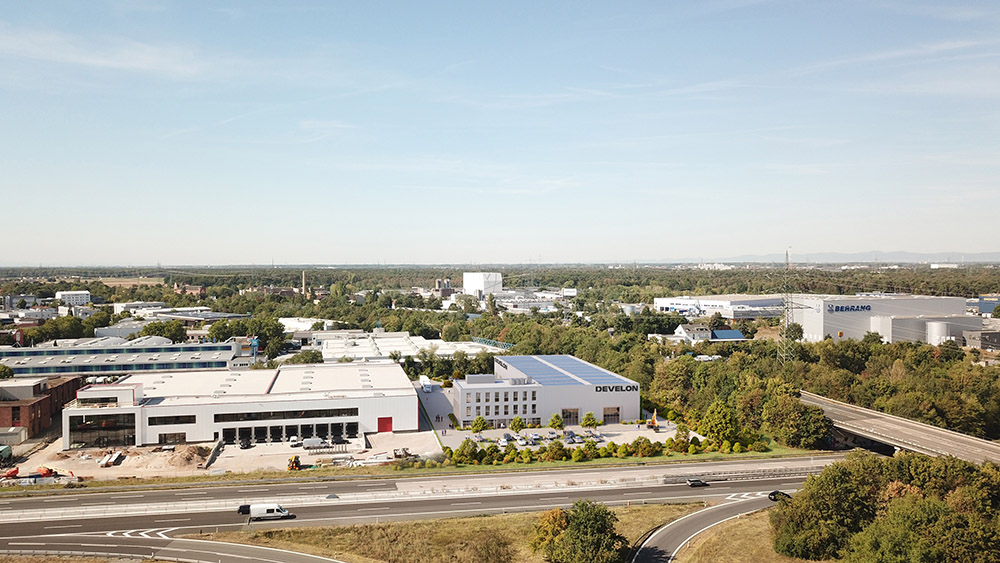
Develon, formerly known as Doosan Construction Equipment, says it has invested in its German operation, setting the course for further growth in the country, in addition to in Austria and Switzerland.
The South Korean manufacturer of crawler excavators, wheeled loaders and articulated dump trucks (ADTs), says that it is building a state-of-the-art customer and training centre for the German-speaking countries together with a demonstration area for testing machines on a 10,650 m² site in Mannheim. The completion of the new facility is planned for the 3rd quarter of 2024.
Develon says the facility will bring the company much closer to its customers and dealers and clearly demonstrates its commitment to Germany as a business location.
The manufacturer says: “To ensure that customers do not have to wait, operations at a transitional location were already started in March 2023, so that large parts of the federal states of Baden-Württemberg, Rhineland-Palatinate and Hesse can already be supplied with spare parts and services. A well-equipped new rental fleet with the latest generation of construction machinery is available to bridge order peaks, to conserve the company's own capital requirements or to be able to test a product over a longer period of time. The experienced sales team is also already in place.”
With the decision to take over sales, rental and service operations for a clearly defined market area, Develon says it is building on proven and successful market development with its trade partners. “In future, they will also be better supported by German-speaking office staff in Mannheim,” the company states.

